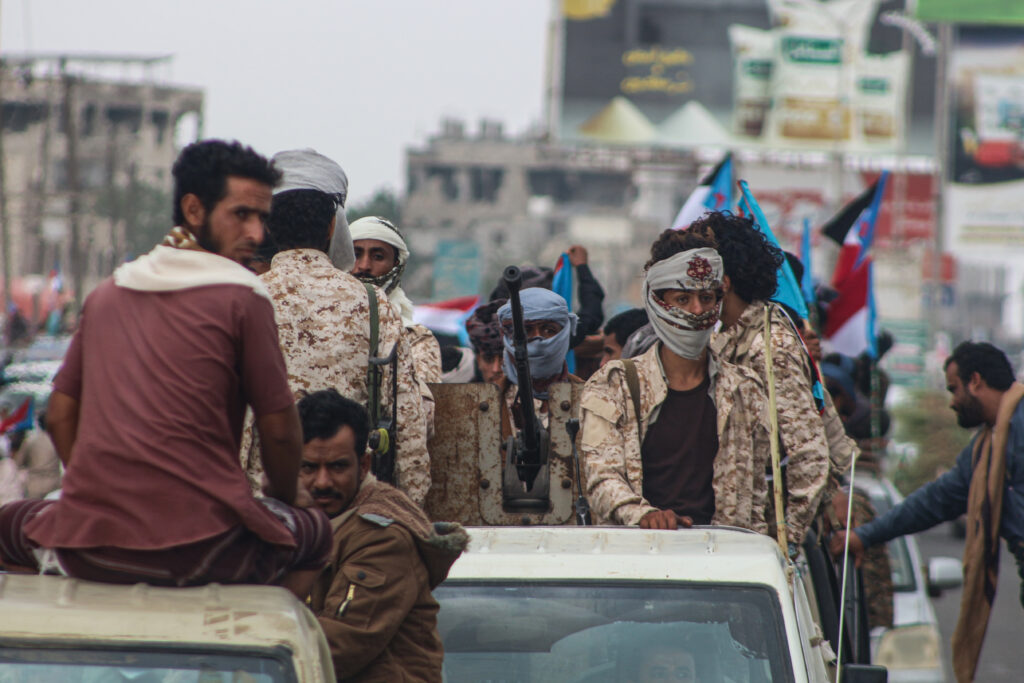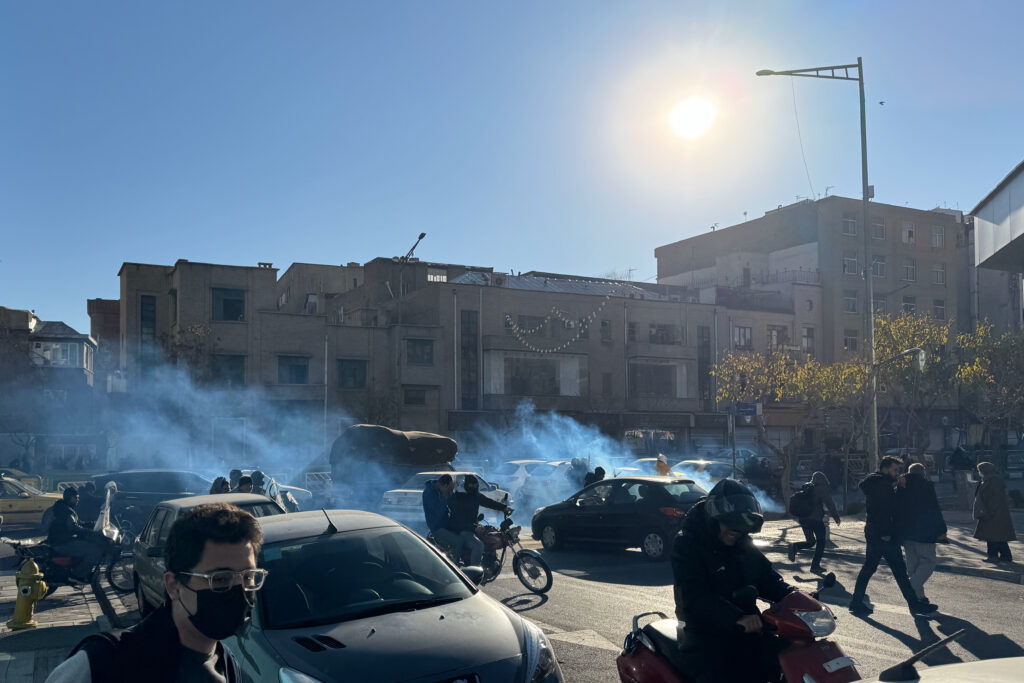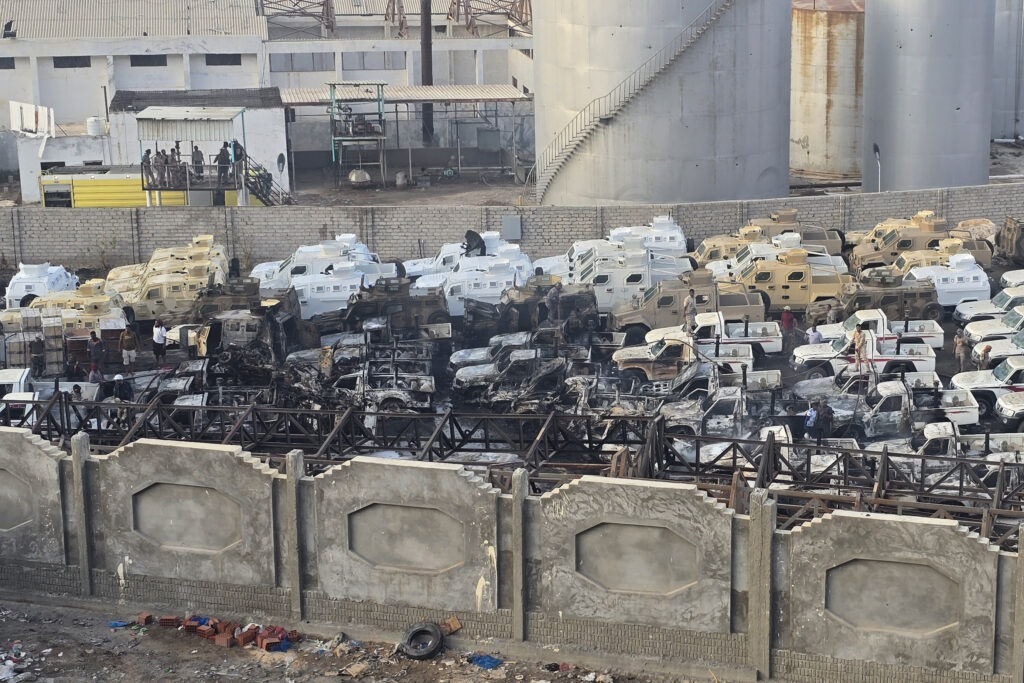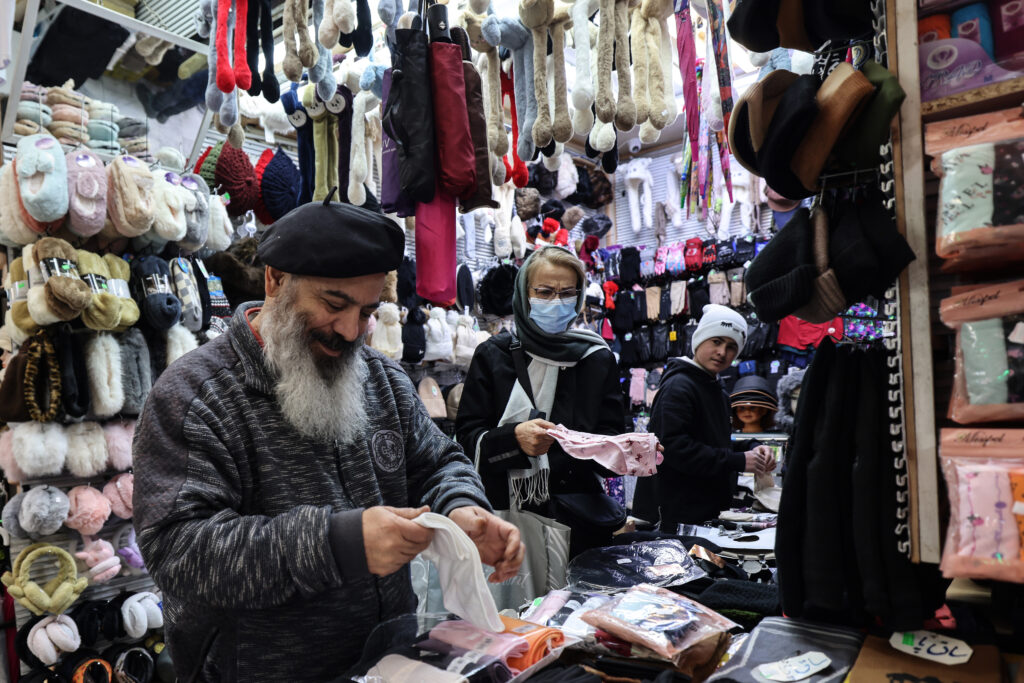AFP Asia Business
UAE to pull forces out of Yemen as 24-hour deadline set
The UAE said Tuesday it was pulling its remaining forces out of Yemen, following a Saudi demand to withdraw within 24 hours as tensions escalate over a sweeping offensive by Abu Dhabi-backed separatists.The United Arab Emirates’ defence ministry said it was withdrawing “counter-terrorism teams…of its own volition”. Abu Dhabi had denied being behind the separatists’ advance.Yemen’s presidential council and Saudi Arabia, the UAE’s rival powerbroker in the Arabian Peninsula’s poorest country, have both demanded Emirati troops pull out.US Secretary of State Marco Rubio also spoke with his Saudi and UAE counterparts, which are both key US partners, his department said.Rubio and UAE foreign minister Sheikh Abdullah bin Zayed bin Sultan Al Nahyan discussed “the situation in Yemen and broader issues affecting Middle Eastern security and stability”, said Tommy Pigott, a State Department spokesman.Before dawn, the Saudi-led coalition fighting Yemen’s Houthi rebels had struck an Emirati shipment at Mukalla port, saying it was carrying weapons for the separatists, a claim the UAE denied.AFP footage of the port showed dozens of parked military vehicles and pick-ups, several of which were burnt out and smouldering as workers hosed them down.Tuesday’s rapid-fire events come after forces from the UAE-backed Southern Transitional Council (STC) marched across resource-rich Hadramawt and Mahra provinces this month, bringing fresh upheaval after a decade-long civil war.The advance has raised the spectre of the return of South Yemen, a separate state from 1967 to 1990, while dealing a hammer-blow to slow-moving peace negotiations with Iran-backed Houthi rebels.Emirati troops arrived in Yemen as part of the Saudi-led coalition fighting the Houthis, who had forced the government from the capital Sanaa in 2014 and seized much of the country.The UAE pulled out most of its forces in 2019, leaving only a limited number in the government-run south where a patchwork of militias hold sway.- ‘Unreasonable’ -Its final withdrawal follows a rare public dispute with Riyadh, which accused Abu Dhabi of pressuring STC forces “to conduct military operations” on Saudi Arabia’s southern border. “The steps taken by the UAE are considered highly dangerous,” a foreign ministry statement said, adding: “The Kingdom stresses that any threat to its national security is a red line.”Also on Tuesday, the leader of Yemen’s presidential council dissolved a defence pact with the UAE and declared a 90-day state of emergency.Abu Dhabi denied being behind the separatist advance and insisted the shipment targeted at Mukalla contained only vehicles destined for its own forces.The UAE “condemns the claims made regarding the exertion of pressure or direction on any Yemeni party to carry out military operations”, a statement said.It added: “The shipment in question did not contain any weapons, and the vehicles unloaded were not intended for any Yemeni party.”Both the UAE and Saudi Arabia expressed a willingness to engage in dialogue.”Diplomacy is still an option to stop any further escalation,” a source close to the Saudi military coalition told AFP. However, the STC remained defiant, insisting there was “no thinking about withdrawal” from its newly seized positions.”It is unreasonable for the landowner to be asked to leave his own land. The situation requires staying and reinforcing,” STC spokesman Anwar Al-Tamimi told AFP.- ‘Unacceptable to God’ -“We are in a defensive position, and any movement toward our forces will be responded to by our forces,” he added. Tamimi said Saudi Arabia had moved around 20,000 security forces along its border with Hadramawt, adjacent to positions held by the STC. The STC is also a key member of the government — a fractious alliance held together by its opposition to the Houthis.Mukalla resident Abdullah Bazuhair, whose home overlooks the port, showed AFP the damage to his property, with windows blasted clear out of the walls and glass strewn across the floor.”The children were terrified and the women frightened,” he said, calling the strikes “unacceptable to God”.The Saudi-led coalition had warned that it would back Yemen’s government in any military confrontation with separatist forces, and urged them to withdraw.Tuesday’s strike came days after reported Saudi air raids on separatist positions in resource-rich Hadramawt last week.A Yemeni military official said on Friday that around 15,000 Saudi-backed fighters were massed near the Saudi border but had not been given orders to advance on separatist-held territory.burs/ds/th/lg/phz/jgc
Students join Iran demonstrations after shopkeepers protest
Iranian students staged street protests in Tehran on Tuesday, a day after the capital’s shopkeepers demonstrated against economic hardship and won a message of understanding from the president.According to Ilna, a news agency associated with Iran’s labour movement, protests erupted at 10 universities across the country, including seven in Tehran that are among the country’s most prestigious.Protests also broke out at the technology university in the central city of Isfahan and institutions in the cities of Yazd and Zanjan, Ilna and state-run IRNA reported.On Tuesday, security forces and riot police were deployed at major intersections in Tehran and around some universities, according to AFP journalists, while some of the shops closed the previous day in the capital’s centre had reopened. The student action came after Monday’s protests in central Tehran by shop-owners and a day ahead of the temporary closure of banks, schools and businesses in the capital and in most provinces to save energy during the bitterly cold weather.The Iranian rial has dropped against the dollar and other world currencies — when the protests erupted on Sunday, the US dollar was trading at around 1.42 million rials, compared to 820,000 rials a year ago — forcing up import prices and hurting retail traders.Demonstrations erupted on Sunday at the city’s largest mobile phone market, before gaining momentum, though they remained limited in number and confined to central Tehran. The vast majority of shops elsewhere continued to operate as usual.President Masoud Pezeshkian — who has less authority under Iran’s system of government than supreme leader Ayatollah Ali Khamenei — met Tuesday with labour leaders and made proposals to tackle the economic crisis, according to press agency Mehr. “I have asked the interior minister to listen to the legitimate demands of the protesters by engaging in dialogue with their representatives so that the government can do everything in its power to resolve the problems and act responsibly,” he said in a social media post.According to state television, parliamentary speaker Mohammad Bagher Ghalibaf, also called for “necessary measures focused on increasing people’s purchasing power” but warned against foreign agents and government opponents attempting to exploit the protests.On Monday, the government announced the replacement of the central bank governor with former economy and finance minister Abdolnasser Hemmati.- Battered economy -Price fluctuations are paralysing sales of some imported goods, with both sellers and buyers preferring to postpone transactions until the outlook becomes clearer, AFP correspondents reported.According to the Etemad newspaper, one trader complained that officials had offered no support to storekeepers battling soaring import costs.”They didn’t even follow up on how the dollar price affected our lives,” he complained, speaking on condition of anonymity.”We had to decide to show our protest. With this dollar price, we can’t even sell a phone case, and the officials don’t care at all that our lives are run by selling mobile phones and accessories.”In December, inflation stood at 52 percent year-on-year, according to official statistics. But this figure still falls far short of many price increases, especially for basic necessities.The country’s economy, already battered by decades of Western sanctions, was further strained after the United Nations in late September reinstated international sanctions linked to the country’s nuclear programme that were lifted 10 years ago.Western powers and Israel accuse Iran of seeking to acquire nuclear weapons, a charge Tehran denies.The current protests against the high cost of living have not reached the level of the nationwide demonstrations that shook Iran in 2022.Those protests were sparked by the death in custody of 22-year-old Mahsa Amini, who was arrested for allegedly violating the country’s strict dress code for women. Amini’s death triggered months of unrest, with hundreds of people, including dozens of security personnel, killed and thousands more arrested.In 2019, protests broke out in Iran after the announcement of a sharp increase in petrol prices. The unrest spread to around 100 cities, including Tehran, and left dozens dead.
A war within a war: Yemen’s latest conflict
Yemen has been at war since Iran-backed Houthi rebels ousted the government in 2014, triggering a Saudi-led military intervention, but a new internal conflict has been brewing in recent weeks.The face-off involves rival armed factions loosely grouped under the government but separately backed by the United Arab Emirates and Saudi Arabia.The UAE on Tuesday said it was pulling its remaining forces out of Yemen, following a Saudi demand to withdraw within 24 hours as tensions escalate over a sweeping offensive by Abu Dhabi-backed separatists, who have refused to pull back.Here is what we know about the latest events threatening the already-fractured government and what could happen next.- What’s happening now? -This month, the Southern Transitional Council (STC), a UAE-backed secessionist group and key government partner, seized most of resource-rich Hadramawt province and swaths of neighbouring Mahrah. Saudi Arabia, chief supporter of Yemen’s government, has hit back, and tensions escalated Tuesday when a Saudi-led military coalition attacked an alleged shipment of weapons and combat vehicles it said was sent from the UAE to the separatists.The UAE denied sending weapons to the STC.After the strikes, Yemen’s presidential council dissolved a defence pact with the UAE and declared a 90-day state of emergency.The strikes came after raids hit STC positions on Friday, following calls from Riyadh for a separatist withdrawal. Later Tuesday, the UAE announced its remaining forces would leave Yemen, before an STC spokesman vowed the separatists would hold their positions.A Yemeni military official said around 15,000 Saudi-backed fighters were massed near the Saudi border, with no orders to advance.”The standoff risks upending Yemen’s fragile three-and-a-half-year truce,” wrote April Longley Alley, a senior fellow at the Washington Institute, in an analysis.”It could also further strain relations between key US allies Saudi Arabia and the UAE.”- What does the STC want? -The STC appears to be launching a bid for greater self-determination over territories it controls or even outright independence, observers said. Headed by Aidaros Alzubidi, the STC is a coalition of groups that want to bring back South Yemen, which existed from 1967 to 1990, when it reunified with North Yemen.They now control almost all of South Yemen’s former territory.The STC “is betting that if the South can be united under a single leadership –- its own, of course –- it can cordon the South off from the Houthis in the North, utilise oil and gas revenue, and create a stable and functioning state,” wrote Gregory D. Johnsen, a non-resident fellow at the Arab Gulf States Institute, in a recent analysis.Such a move “is a tall order, and it will likely be contested both internally and externally”, Johnsen added.- Why is Saudi ‘sleepless’ over Hadramawt? -Hadramawt is Yemen’s largest province, comprising roughly a third of the country’s territory, and its wealthiest.It is home to most of Yemen’s vital petroleum deposits, and its ports are away from the Red Sea hotspot that regularly comes under Houthi fire.But for the Saudis, the province abutting their southern border is about more than just land and wealth. For generations, Hadramawt families have been a force in the Saudi economy and make up a sizeable portion of the business community.Seen as having entrepreneurial skills and grit, migrants from Hadramawt have long flourished in Saudi Arabia, from running family restaurants to starting multi-billion dollar construction consortiums. Losing Hadramawt to a UAE-backed militia would be a strategic blow to Riyadh.”If I’m Saudi Arabia, I’d be sleepless if I lose Hadramawt,” said Farea al-Muslimi, a research fellow at Chatham House’s Middle East and North Africa Programme. – Can the Saudis stop the separatists? -The latest escalation pits the Saudi alliance against a militia keen to exert control over territory it sees as historically distinct from the rest of Yemen. The decade-long, largely fruitless fight against the Houthis may not give Riyadh much cause for optimism. Despite spending billions in a campaign including air strikes, the Saudi-led intervention has failed to bring the Houthis to heel.Military experts cite the south’s more open terrain as playing to Saudi Arabia’s possible advantage. An air campaign alone, however, is unlikely to dislodge their forces. Air strikes “can never make a significant difference in battles if there is no ground war”, said Muslimi.
Saudi Arabia condemns ‘dangerous’ UAE moves in Yemen after striking shipment
Saudi Arabia declared a UAE-backed separatist advance in Yemen a threat to the kingdom’s national security on Tuesday and called Abu Dhabi’s actions “highly dangerous”, as the rivalry between the Gulf monarchies boiled over into an open dispute.The strongly worded foreign ministry statement came hours after the Saudi-led coalition fighting in Yemen said it had struck a United Arab Emirates weapons shipment destined for separatist forces.”The steps taken by the UAE are considered highly dangerous,” it said, adding “the Kingdom stresses that any threat to its national security is a red line, and the Kingdom will not hesitate to take all necessary steps and measures to confront and neutralise any such threat”.The United Arab Emirates later rebuffed the accusations from Saudi Arabia, saying: “the shipment in question did not contain any weapons, and the vehicles unloaded were not intended for any Yemeni party.”In recent weeks, separatists backed by the UAE seeking to revive the formerly independent state of South Yemen have made sweeping territorial gains in a lightning offensive.Experts say their successes have embarrassed Saudi Arabia, a regional heavyweight and the main backer of the internationally recognised Yemeni government.”Given the danger and escalation posed by these weapons… the coalition air forces carried out a limited military operation this morning targeting weapons and combat vehicles that had been unloaded from the two ships at the port of Al-Mukalla,” the alliance said, according to the Saudi state news agency.AFP footage of the port showed dozens of parked military vehicles and pick-ups, several of which were burnt out and smouldering as workers hosed them down.After the strikes, the leader of Yemen’s presidential council, which sits atop the Aden-based government, declared a state of emergency and cancelled a security pact with Abu Dhabi after the forces of the UAE-backed Southern Transitional Council (STC) seized swaths of territory.The STC is also a key member of the government — a fractious patchwork of groups held together by its opposition to the Iran-backed Houthi rebels who control swaths of northern and western Yemen including the capital Sanaa.- ‘A red line’ -Saudi Arabia and the UAE — traditionally close allies who joined forces against the Houthis — have increasingly been at odds over the conflict as well as the war in Sudan.”The Kingdom expresses its disappointment by the actions taken by the brotherly United Arab Emirates, pressuring the Southern Transitional Council’s forces to conduct military operations on the southern border of the Kingdom,” the Saudi foreign ministry statement said.It called them “a threat to the Kingdom’s national security, as well as to security and stability in the Republic of Yemen and the region,” it said.Abu Dhabi denied that it was behind the separatist offensive, saying it “condemns the claims made regarding the exertion of pressure or direction on any Yemeni party to carry out military operations that affect the security of the sisterly Kingdom of Saudi Arabia”.A source close to the Saudi military coalition told AFP on Tuesday after the strikes that a diplomatic solution remained on the table. “The coalition was forced to do that. All diplomacy efforts met deaf ears,” said the source. “Diplomacy is still an option to stop any further escalation.”- 24-hour deadline -Riyadh also backed a demand from Yemen’s presidential council for Emirati forces to withdraw from the country within 24 hours, and urged Abu Dhabi to cut off military and financial support for Yemeni groups.Rashad al-Alimi, head of the Presidential Leadership Council, issued decrees on Tuesday announcing a 90-day state of emergency and annulling a security pact with the UAE over the separatists’ advance.The STC members of the council later rejected the decision, saying the move threatened to “drag Yemen into new confrontations”.Following the strikes, broadcasters in Saudi Arabia aired segments showing surveillance footage of the alleged Emirati ships delivering the combat equipment to the port of Mukalla in southern Yemen. The Saudi-led coalition said the ships had arrived from the UAE port of Fujairah, adding that the operation was conducted in accordance with international humanitarian law and without causing collateral damage.An official at the port said they had received an evacuation warning.- ‘Unacceptable to God’ -Abdullah Bazuhair, whose home overlooks the port, showed AFP the damage to his property, with windows blasted clear out of the walls and glass strewn across the floor. The strikes were “unacceptable to God” he said, adding “the children were terrified and the women frightened”.The Saudi-led coalition had warned that it would back Yemen’s government in any military confrontation with separatist forces and urged them to withdraw from recently seized territories in Hadramawt and Mahra governorates.Tuesday’s strike came days after reported Saudi air raids on separatist positions in resource-rich Hadramawt last week.A Yemeni military official said on Friday that around 15,000 Saudi-backed fighters were massed near the Saudi border but had not been given orders to advance on separatist-held territory.burs/ds/dcp
Iran president urges officials to address protestors’ complaints
Iran’s president urged his government to listen to the “legitimate demands” of protesters, state media reported on Tuesday, a day after demonstrations by shopkeepers in Tehran over economic hardship.Monday’s protest took place mainly in central Tehran’s shopping districts. On Tuesday morning, most shops and cafés were open as usual, AFP saw, along the vast Vali-asr Avenue which runs 18 kilometres (11 miles) from north to south through Tehran.Riot police were, nonetheless, monitoring the main squares in the city centre.When the protests erupted on Sunday, the US dollar was trading at around 1.42 million rials — compared to 820,000 rials a year ago — and the rial strengthened only slightly by Tuesday.On Wednesday, schools, banks and businesses will be closed in Tehran and several other regions in the north and centre of the country to save energy amid severe winter cold, state media reported.It was into this atmosphere that President Masoud Pezeshkian — who has less authority under Iran’s system of government than supreme leader Ayatollah Ali Khamenei — made his statement. “I have asked the interior minister to listen to the legitimate demands of the protesters by engaging in dialogue with their representatives so that the government can do everything in its power to resolve the problems and act responsibly,” he said, in a social media post.According to state television, parliamentary speaker Mohammad Bagher Ghalibaf, also called for “necessary measures focused on increasing people’s purchasing power”. “People’s concerns and protests regarding livelihood problems must be responded to with full responsibility, and dialogue,” he said.Price fluctuations are paralysing the sales of some imported goods, with both sellers and buyers preferring to postpone transactions until the outlook becomes clearer, AFP correspondents reported.According to the Etemad newspaper, one trader who did not give his name, complained that officials had offered no support to storekeepers battling soaring import costs.”They didn’t even follow up on how the dollar price affected our lives,” he complained. “We had to decide to show our protest. With this dollar price, we can’t even sell a phone case, and the officials don’t care at all that our lives are run by selling mobile phones and accessories.”- Battered economy -Iranian Chief Justice Gholamhossein Mohseni Ejei called for “the swift punishment of those responsible for currency fluctuations”, the justice ministry’s Mizan agency reported Monday.The government has also announced the replacement of the central bank governor.”By decision of the president, Abdolnasser Hemmati will be appointed governor of the Central Bank,” presidency communications official Mehdi Tabatabaei posted on X.Hemmati is a former economy and finance minister who was dismissed by parliament in March because of the sharp depreciation of the rial.In December, inflation stood at 52 percent year-on-year, according to official statistics. But this figure still falls far short of many price increases, especially for basic necessities.The country’s economy, already battered by decades of Western sanctions, was further strained after the United Nations in late September reinstated international sanctions linked to the country’s nuclear programme that were lifted 10 years ago.Western powers and Israel accuse Iran of seeking to acquire nuclear weapons, a charge Tehran denies.




